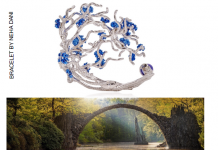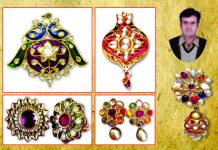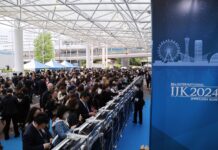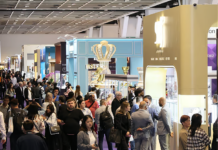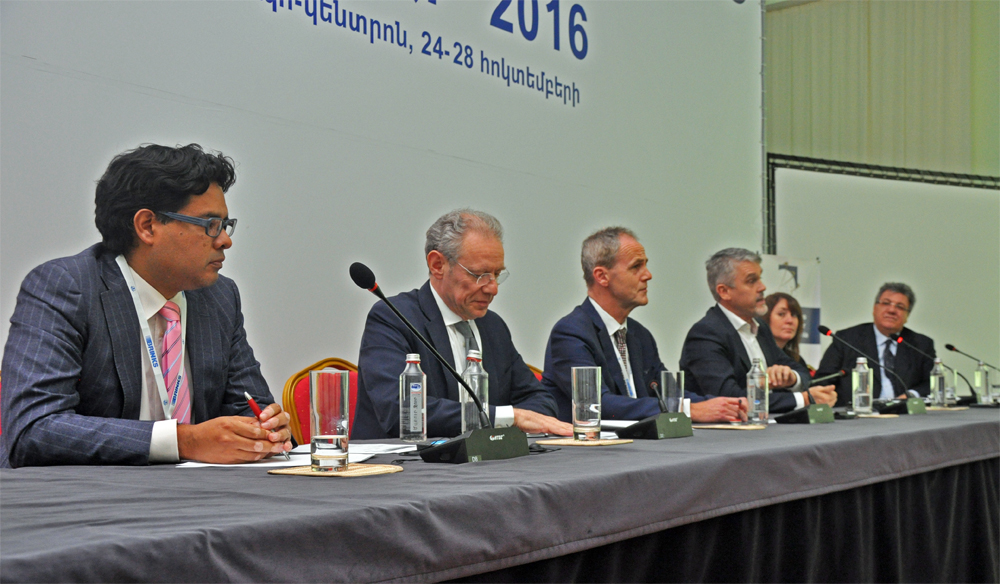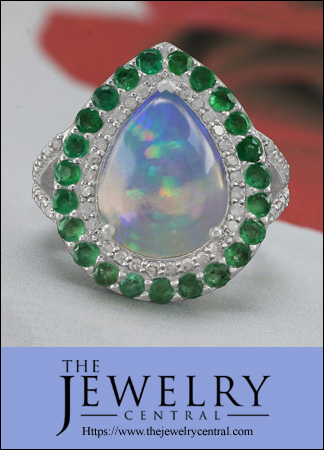Discussions in two crucial sessions of the 2016 CIBJO Congress held soon after the inauguration turned the spotlight on how the industry is viewed by consumers and the need not only for CSR initiatives, but also to effectively communicate these to the consumers at large so as to enhance the reputation of the gem and jewellery industry.
Renowned speakers from different industry segments concurred on this aspect elaborating this in the context of the segment they are most closely involved in.
One of the discussions focused on the Kimberley Process (KP), its achievements and how it is perceived. AWDC President Stephane Fischler said, “There is no doubt that the KP’s narrow focus has proven to be effective.”
He added that the industry should discuss values with its members. “Our members must understand that CSR is an opportunity not a risk for their businesses,” he stated.
Gemfields President and CEO Ian Harebottle asked if some of the definitions used by international organizations are too wide and leave a vacuum that needs filling. He averred that the industry needs to do more. “Jewellery is still seen as luxury not a necessity and companies dealing in them are expected to do more”.
He said that his firm spends about 1 per cent of revenue on sustainability programs, which translates into about 20 per cent of net income. “We work with our downstream participants to ensure they are working ethically – no child labour and that they are paying taxes and other commitments as responsible firms. Disclosure is also critical and we believe that it brings a return on investment.”
Andrei Polyakov, President of the World Diamond Council and Vice President of ALROSA, said, “Jewellery retailers are the most important part of the pipeline because of their interface with consumers. That is why CIBJO is so important for the jewellery industry. It unites the global business. Its work on the Blue Books is critical. Your work in responsible business practices is crucial.”
Responsible Jewellery Council Executive Director Andrew Bone said the KP has done excellent work, but media talk about a whole range of other things it should do may have created the impression that it was not completely fulfilling its mission.
“There have been enormous changes in the last decade or so and that has changed the culture for the good regarding Corporate Social Responsibility. These changes are now accepted. We must continue to cooperate to stay one step ahead of our detractors,” Bone added.
Responsible Jewellery Council Executive Director Andy Bone described the RJC as the only standards organization covering the entire chain from mines to retail and said it is seeing very large growth rates with the latest large member being ALROSA.
He added that the RJC has 856 members “and hopefully 1,000 by next year,” with members in 66 countries with 400,000 employees.
Responsible Ecosystems Sourcing Platform’s Executive Director Eduardo Escobedo commented that the number of changes that have been carried out in the last 20 years in sustainability efforts is extraordinary.
He spoke of the need for responsible action in business, pointing out examples in the environmental field where members could take action. “We believe there is still a large gap between what is being done and what needs to be done to help the environment,” he said.
Pic caption: Panel discussion in progress at CIBJO Congress 2016
– News Source : gjepc.org
Disclaimer: This information has been collected through secondary research and TJM Media Pvt Ltd. is not responsible for any errors in the same.

